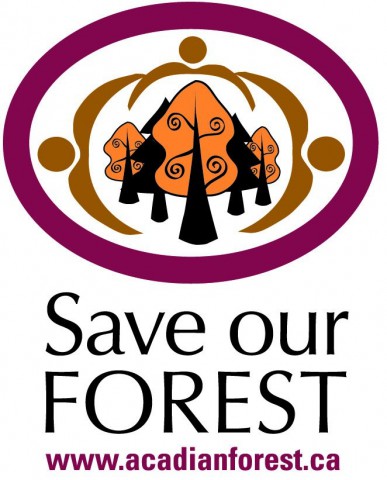Newspaper L’Acadie Nouvelle reported on the Conservation Council’s call for the provincial government to end the spraying of glyphosates on the Crown forest after an arm of the World Health Organization classified the widely-used herbicide as a probable cancer-causing chemical.
On Wednesday, March 25, the Conservation Council issued a press release about the recently released decision on herbicides by the Paris-based International Agency for Research on Cancer. The IARC classified several herbicides, including glyphosate, as probable cancer-causing chemicals based on evidence from studies on humans and animals.
Glyphosate, sold under trade names such as Roundup, Vision and Vision Max, is a weedkiller used in agriculture, silviculture, recreational areas and lawns. It’s used in herbicides sprayed on roughly 13,000 hectares of Crown forest in New Brunswick each year. Spraying occurs for about 40 days between August and September, covering about 25 per cent of the softwood land cut each year. Herbicides have been sprayed in New Brunswick since the 1970s when the government first permitted pulp and paper companies to clearcut natural forest and replace it with plantations.
Quebec banned the use of glyphosate in forestry in 2001 and replaced herbicides with thinning crews. Nova Scotia recently abandoned the public funding of herbicide spraying of its forest and is moving toward FSC certification of its forest, which would mean no more herbicides in the woods. In New Brunswick, taxpayers continue to fund silviculture on Crown land that includes spraying, which according to data from Natural Resources Canada, can cost the province about $1,000/ha.
The Conservation Council advocates for replacing herbicide chemicals that are connected to cancer with thinning crews in order to create well-paying jobs and protect the health of ourselves and our forest.
“Creating good jobs and protecting our health and the health of our forest is very important to New Brunswickers,” says Glynn. “Following in our neighbour’s footsteps by using thinning crews instead of chemicals that have been connected to cancer is just good common sense.”

